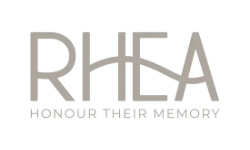The workplace family can be affected by grief too.
Organisations are adjusting to the return to the workplace of most employees after the pandemic. Almost 2 years ago workplaces began to shut down for what was expected to be a couple of weeks, colleagues waved goodbye to each other with bemusement, trepidation and anxiety about what the closure meant. From that day to this, lives have changed on a grand scale and many people are returning to the office with as many as 600,000 closely affected by bereavement since March 2020* with some workplaces directly experiencing the loss of a colleague.
Those bereaved during the pandemic have experienced complications and delays to the grieving process which have never been experienced before. Many “may not have been able to:
- visit their loved one when they were sick.
- be with them when they died.
- see the body of their loved one before burial.
- have a traditional funeral service.
- give and receive physically, comfort and support to/from family and friends.”
(Irish Hospice Foundation ‘Supporting bereaved people during Covid 19)

While many of us were perhaps annoyed by the affect the lockdown had on our social lives, imagine, for a bereaved person, the aching loss of not being able to meet a close friend for a coffee and a cry. In the past, many people found that returning to work after a loss offered routine, social interaction and a reason to get out of bed during the foggy, exhausted first phase of grief. Imagine that option being removed and instead replaced with ‘logging on from the kitchen table’.
We cannot replace what has been lost for those who had to go through the anguish of bereavement during the pandemic however we can make space for their grief and play a part in supporting their ‘new normal’.
‘compassion trumps policy and procedure’
The Irish Hospice Foundation wisely advises that when it comes to workplace bereavement ‘compassion trumps policy and procedure’. Grief is not just sadness – it is a complicated variety of experiences and symptoms that range from exhaustion to anger, loss of appetite and more. Grief in the workplace, like many other forms of stress, has increased with one health insurer reporting a 40% increase in queries to its Employee Assistance Programme seeking advice on how to support bereavement and loss.
As we all continue to bravely and anxiously step out into the post-pandemic world, it is important that in the midst of moving on, we don’t forget that the pace will be different for everyone and every work place. A useful phrase I recently heard recommends that ‘when you invite someone somewhere, make sure they know their grief is invited too’. This is true of the workplace too – let the grieving person set the terms and be ready to accommodate their grief, it has after all changed their life. Equally, where a colleague has died, a workplace can struggle to adjust and come to terms with the loss, especially if time has passed.

Make 2022 a year to mark and acknowledge losses that colleagues and employees may have experienced
Make 2022 a year to mark and acknowledge losses that colleagues and employees may have experienced and are continuing to come to terms with. In addition to the personal supports offered at work, a collective workplace memorial or remembrance event is a way to pause, acknowledge and extend the hand of support. An event can offer an outlet to silent grief and can establish connections among colleagues who identify each other’s bereavement. In a world of work which has changed so much by the pandemic we have an opportunity to establish a culture of compassion in how we accommodate grief.
Read more about supporting bereaved staff below and contact us to discuss your Memorial or Remebrance event needs.

Resources and more information:
Irish Hospice Foundation – Bereavement Hub – Supporting Bereaved Staff
HSE – Wellbeing – Bereavement and Loss
*An estimated 300,000 people newly bereaved each year x 2 years (Irish Hospice Foundation)
